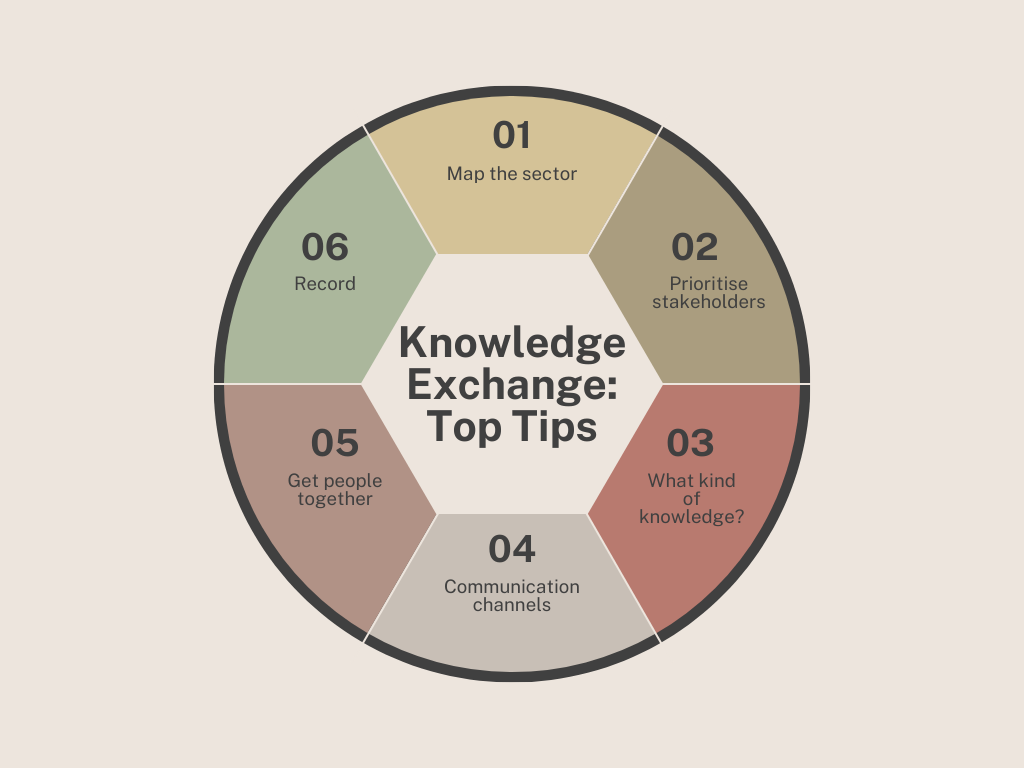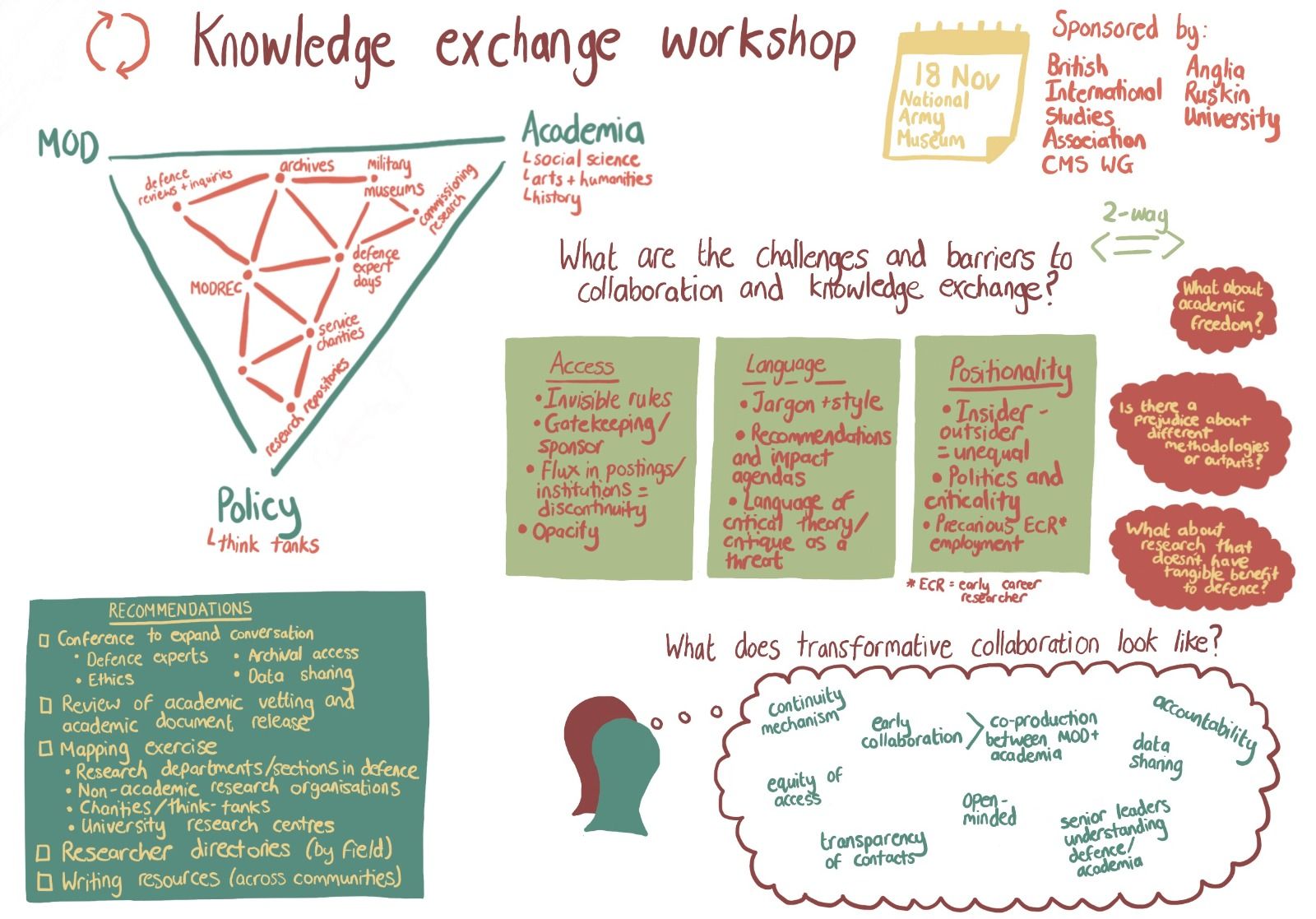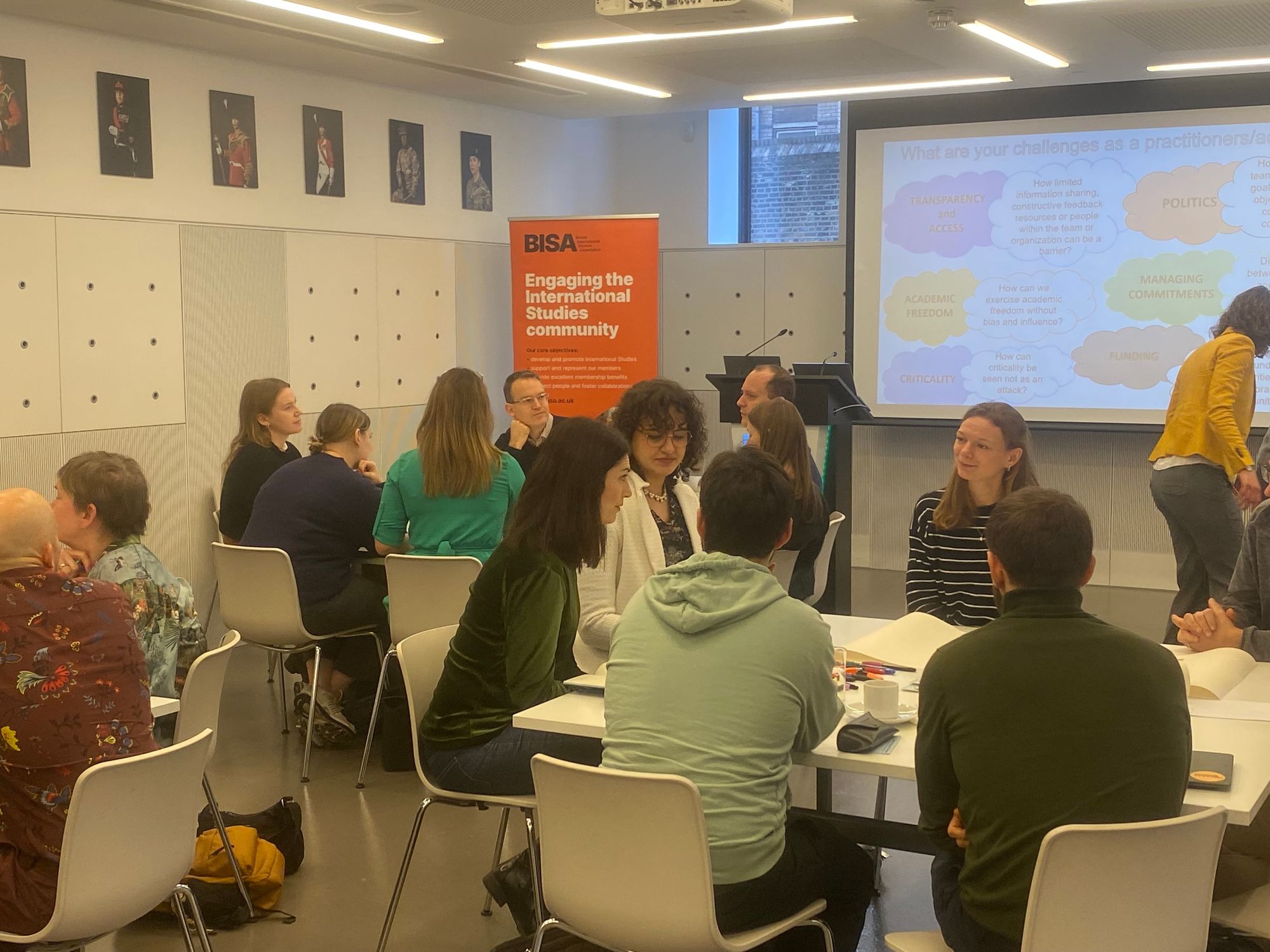Knowledge Exchange: Top Tips
Our recent workshop created space to share knowledge, align on potential joint agendas, and build relationships. We began by mapping the sector, identifying stakeholders across defence, policy, and academia, and prioritising influential voices, we explored how to connect and collaborate.

1. Map the sector
Find out who is out there, talk to them, ask for more contacts. Work out what types of different of stakeholders you are talking to - organisations or individuals; statutory, commercial, charity; UK or international. Who is missing?
2. Prioritise them
Work out who the ‘influencers’ are (whose voice is being listened to and why), how can you connect with them (social media, event they are speaking at, email, introduction).
3. Knowledge
What kind of knowledge do you all hold and how can this help others. What kinds of joint agendas might you be interested in collaborating on (grant applications, policy change).
4. Communication channels
How best to communicate with everyone. Depending on size of audience you may need newsletters and websites or conversations and meetings.
5. Get people together
Can be face to face (always preferable but not always possible in my experience). Factor in space for everyone to share what they are working on and think about what you can all offer each other (can be simple e.g. reposting their posts, sharing their work in a newsletter or inviting them to an event.
6. Record
Capture the conversation (whether creatively or as notes/table) as a record for those who couldn’t attend (and for future reference) but most importantly take down actions. Focus on how you can help support each other or what you have a collective motivation to work towards (could be writing in various forms from articles to blogs as well as research or policy advocacy/activism).

We recently held a knowledge exchange workshop at the National Army Museum sponsored by the British International Studies Association and Anglia Ruskin University and in collaboration with the BISA Critical Military Studies Working Group. The Defence Research Network had been building up connections across the MOD, policy and academia since we were established and this was a perfect opportunity to bring everyone together. We felt strongly that there was a conversation to be had about the intersection between these audiences to explore how we can share what we are working on. It is about recognising that we don't have to all be working towards the same end goal or using the same methods to be able to help each other and share knowledge. It is not without its challenges reaching across communities and cultures and we did struggle to get everyone we wanted in the room. But it was a great starting point and we are still working on the next steps from this workshop which will hopefully take the form of a grant application to build on the conversations we started.


